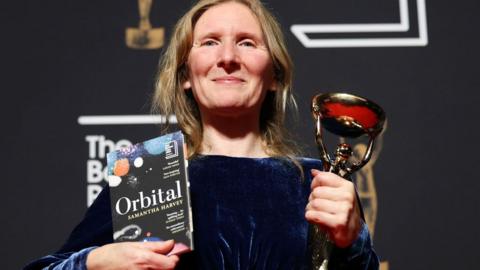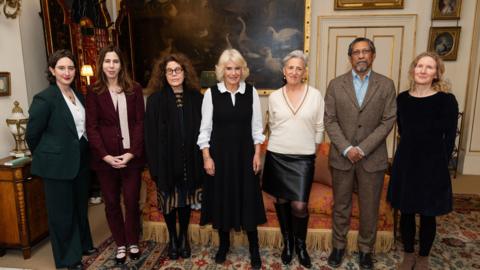Chair of the judges, Edmund de Waal, described Orbital as a "book about a wounded world".
He said the judges all recognised its "beauty and ambition" and praised her "language of lyricism".
Writing it, Harvey said she "thought of it as a space pastoral - a kind of nature writing about the beauty of space".
The 136-page long story, which is Harvey's fifth novel, takes place over a single day in the life of six astronauts and cosmonauts.
During those 24 hours they observe 16 sunrises and 16 sunsets over their silent blue planet, spinning past continents and cycling past seasons, taking in glaciers and deserts, the peaks of mountains and the swells of oceans.
It is the second-shortest book to win the prize, and covers the briefest timeframe of any book on the shortlist. The shortest winning novel in the history of the prize was 1979's Offshore by Penelope Fitzgerald, at 132 pages.

